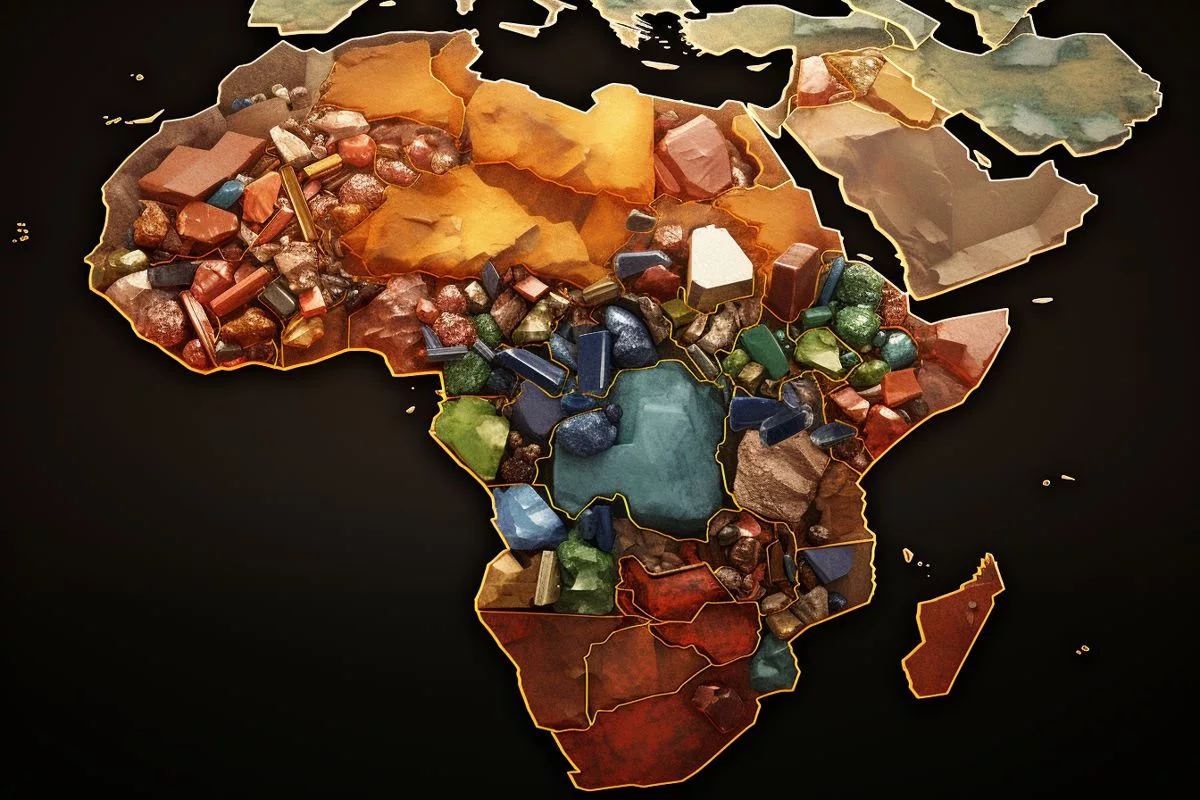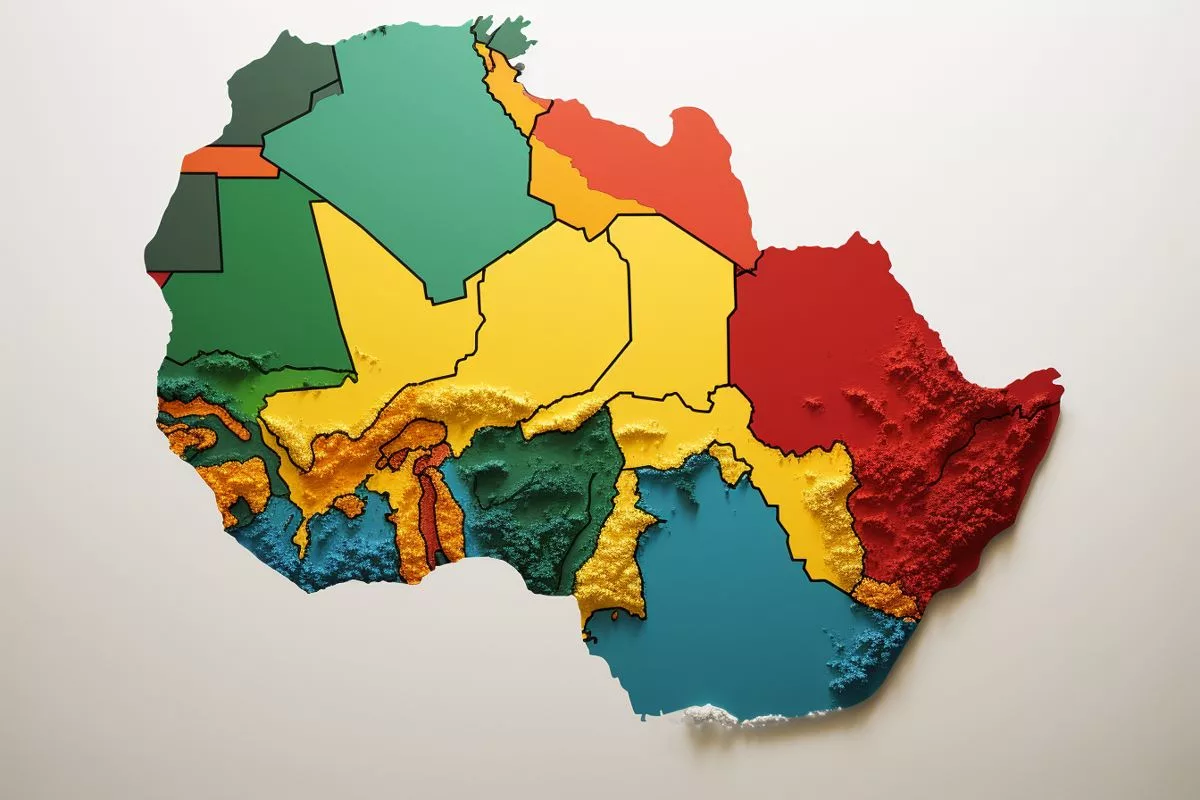The African Growth and Opportunity Act (AGOA) encourages trade and economic collaboration between the United States and sub-Saharan African nations, promoting industrial development, job creation, and diversification of international supply chains. At the 20th AGOA Forum, President Cyril Ramaphosa highlighted the significance of industrial development, employment generation, and inclusive economic growth throughout Africa. AGOA has the potential to be a potent tool in accomplishing these objectives, but its complete potential has not yet been actualized. Early reauthorization and renewal of AGOA, along with essential reforms, can reinforce trade and investment relationships between the United States and African countries.
What is the African Growth and Opportunity Act (AGOA) and how can it enhance industrialization, job creation, and inclusive growth in Africa?
AGOA, established over two decades ago, encourages trade and economic collaboration between the United States and sub-Saharan African nations, laying the groundwork for future growth and joint ventures. Industrial development, job creation, and diversification of international supply chains of vital minerals are crucial to enhancing living conditions for the 1.3 billion people residing in Africa. AGOA’s role in regional industrial growth and the incorporation of African economies is crucial for diversifying trade and cultivating the continent’s productive capabilities.
Industrialization, Job Creation, and Inclusive Growth
During the 20th AGOA Forum in Johannesburg, South Africa, President Cyril Ramaphosa highlighted the significance of industrial development, employment generation, and inclusive economic growth throughout Africa. The African Growth and Opportunity Act (AGOA), established over two decades ago, has encouraged trade and economic collaboration between the United States and sub-Saharan African nations, laying the groundwork for future growth and joint ventures.
Boasting a wealth of vital minerals, a youthful populace, high urbanization rates, and expanding connectivity, the African continent offers immense potential. President Ramaphosa underscored the necessity for Africa to ascend the value chain instead of simply serving as a resource for raw materials. The path to greater prosperity lies in the conversion of these resources into sophisticated industrial and consumer commodities.
Industrial development and job creation are crucial to enhancing living conditions for the 1.3 billion people residing in Africa. The continent is actively seeking partnerships with global stakeholders, such as the United States, to champion investment-driven methodologies and diversify the international supply chains of vital minerals. AGOA has the potential to be a potent tool in accomplishing these objectives.
Realizing AGOA’s Full Potential
However, AGOA’s complete potential has not been actualized. Although the legislation has fostered the growth of manufactured exports to the United States, there is still much progress to be made. Early reauthorization and renewal of AGOA, along with essential reforms to broaden its extent and accessibility to small and medium-sized enterprises, can reinforce trade and investment relationships between the United States and African countries.
Different sub-Saharan African nations have experienced varying degrees of success utilizing AGOA’s zero-tariff treatment, with Kenya and Lesotho achieving some of the highest rates. Excluding crude oil exports, AGOA’s program has demonstrated effectiveness in specific sectors, such as textiles and apparel. Lesotho, Ethiopia, Mauritius, Madagascar, and Kenya have emerged as dependable suppliers for American consumers, generating considerable employment opportunities in the process.
AGOA has also facilitated job creation in South Africa and surrounding countries through the nation’s auto exports to the United States. South African automotive businesses obtain materials from multiple African countries, including leather car seats from Lesotho and wiring harnesses from Botswana. This regional collaboration has generated trade exceeding $200 million among African countries.
Regional Development and the African Continental Free Trade Area
AGOA’s role in regional industrial growth and the incorporation of African economies is crucial for diversifying trade and cultivating the continent’s productive capabilities. The recently implemented African Continental Free Trade Area (AfCFTA) supplements AGOA’s endeavors while simultaneously serving as a catalyst for increased intercontinental trade. President Ramaphosa anticipates that trade under AfCFTA’s new preferences will commence shortly.
The duty-free, quota-free market access that the United States offers under AGOA can be employed to encourage investment in Africa, including from American sources. Extending or renewing AGOA for an extended period would motivate investors to create new factories in Africa, maintaining all beneficiary nations and reinforcing burgeoning regional value chains.
However, concerns remain regarding the adverse effects of trade restrictions on items such as steel, aluminum, and citrus fruit on AGOA utilization rates. President Ramaphosa expressed optimism that future discussions would address these issues.
Strengthening Ties with the Private Sector and Organized Labor
At the 20th AGOA Forum, representatives from the private sector, civil society, and organized labor participated in discussions to ensure that policy fosters employment. This year’s forum marked the inaugural Labor Forum, uniting the voices of American and African workers.
President Ramaphosa also issued an invitation to American retailers, importers, and large corporations to view Africa as an essential industrial procurement source for more resilient supply chains. He urged US companies to dispatch supply-chain managers and procurement officers to Africa for the establishment of factories and other businesses.
In summary, the 20th AGOA Forum represents a pivotal opportunity for the United States and African countries to fortify their trade and investment relationships, advance industrial development, and generate additional employment for the mutual benefit of all participating nations. This cooperative effort will not only revolutionize Africa’s economy but also contribute to a sustainable global future.
1. What is AGOA and how can it enhance industrialization, job creation, and inclusive growth in Africa?
AGOA is a trade and economic collaboration agreement between the United States and sub-Saharan African nations that promotes industrial development, job creation, and diversification of international supply chains. It can enhance industrialization, job creation, and inclusive growth in Africa by laying the groundwork for future growth and joint ventures, diversifying trade, and cultivating the continent’s productive capabilities.
2. What was emphasized by President Cyril Ramaphosa during the 20th AGOA Forum in Johannesburg?
President Cyril Ramaphosa highlighted the significance of industrial development, employment generation, and inclusive economic growth throughout Africa during the 20th AGOA Forum in Johannesburg.
3. What is the potential of AGOA to reinforce trade and investment relationships between the United States and African countries?
AGOA has the potential to reinforce trade and investment relationships between the United States and African countries by utilizing its zero-tariff treatment, encouraging investment in Africa, and maintaining all beneficiary nations while reinforcing burgeoning regional value chains.
4. Has AGOA’s complete potential been actualized?
No, AGOA’s complete potential has not been actualized. Although the legislation has fostered the growth of manufactured exports to the United States, there is still much progress to be made.
5. What essential reforms can broaden AGOA’s extent and accessibility to small and medium-sized enterprises?
Early reauthorization and renewal of AGOA, along with essential reforms to broaden its extent and accessibility to small and medium-sized enterprises, can reinforce trade and investment relationships between the United States and African countries.
6. Which African countries have achieved the highest rates of success utilizing AGOA’s zero-tariff treatment?
Kenya and Lesotho have achieved some of the highest rates of success utilizing AGOA’s zero-tariff treatment.
7. How has AGOA facilitated job creation through South African auto exports to the United States?
South African automotive businesses obtain materials from multiple African countries, including leather car seats from Lesotho and wiring harnesses from Botswana, generating trade exceeding $200 million among African countries and facilitating job creation.
8. What is the role of AGOA in regional industrial growth and the incorporation of African economies?
AGOA’s role in regional industrial growth and the incorporation of African economies is crucial for diversifying trade and cultivating the continent’s productive capabilities. It supplements the recently implemented African Continental Free Trade Area (AfCFTA) while serving as a catalyst for increased intercontinental trade.








